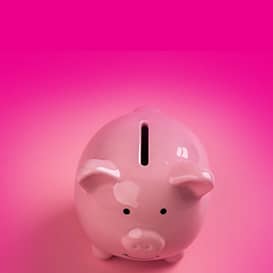

We know the importance of brushing and flossing, but have you ever thought about the role your tongue plays in oral hygiene? The tongue can keep bacteria and leftover food particles, which can lead to bad breath and other oral issues. Cleaning your tongue is an easy habit to add to your routine, and it can make a noticeable difference in your breath, oral health, and even how well you can taste your food. Here’s a simple guide on why cleaning your tongue matters, how to do it, and what tools to use to keep your mouth feeling fresh and healthy.
Like your teeth and gums, your tongue collects bacteria that can build up over time. Without regular cleaning, these bacteria can produce sulphur compounds that cause bad breath. Plus, the surface of your tongue can trap food particles and dead cells, forming a coating that’s not only unpleasant but also creates a cosy environment for bacteria to thrive. This can lead to more than just bad breath – plaque, cavities, and even gum disease can stem from excess bacteria in the mouth.
So, how do you go about cleaning your tongue properly? It’s simple, but doing it regularly with the right tools will make the biggest difference.
If you’re just getting started, the quickest way to clean your tongue is with your toothbrush. After brushing your teeth, give your tongue a gentle brush as well, moving from the back to the front.
While using your toothbrush is a good start, dedicated tongue-cleaning tools tend to be more effective. This is where tongue scrapers come into play.
Tongue scrapers are specifically designed to clean the surface of your tongue. Made from plastic or metal, they’re curved to efficiently remove the build-up on your tongue.
Finishing off your tongue-cleaning routine with a mouthwash rinse is a great way to freshen up further. Mouthwash kills bacteria throughout the mouth, leaving you with an extra-clean feel.
Ideally, clean your tongue twice a day—once in the morning and once before bed. If that seems too much to start with, try incorporating it into your evening routine to remove any build-up from the day’s food and drink.
While cleaning your tongue is simple, a few common mistakes can limit its effectiveness. Here’s what to watch out for:
There are a few different tools available, depending on what you’re most comfortable with. Here’s a quick rundown:
A healthy tongue should be pink with a mostly smooth texture. If you notice any of the following, it may be time to see a dentist or doctor:
Cleaning your tongue is a small but mighty habit that can make a big difference. It helps to keep bacteria levels in check, which benefits not only your breath but also your teeth and gums. A healthy tongue can also improve your sense of taste, making meals more enjoyable.
Adding tongue cleaning to your daily routine is an easy way to improve your breath, oral hygiene, and overall health. With the right tools, such as a toothbrush or tongue scraper, you can make it a quick habit that pays off in the long run. Just a few seconds each day will leave your mouth feeling fresher and more vibrant.
By sticking to these tips and dedicating a small amount of time each day to clean your tongue, you’ll notice a positive impact on your breath and oral health.
For a consultation on your oral and dental health, please contact us at Thurmaston Dental.
Back to BlogLorem ipsum dolor sit amet, consectetur adipiscing elit, sed do eiusmod te...


